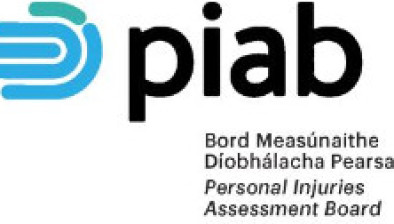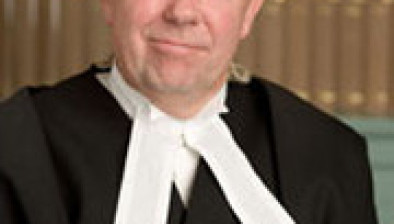High Court: Nightclub wrongful death case to continue despite inordinate delay

The High Court has refused to dismiss 2021 proceedings concerning the death of a man outside a Portlaoise nightclub in 2012 on the bases of the Statute of Limitations and delay.

About this case:
- Citation:[2024] IEHC 448
- Judgment:
- Court:High Court
- Judge:Ms Justice Marguerite Bolger
Delivering judgment for the High Court, Ms Justice Marguerite Bolger warned that although memories are normally assumed to fade with the passage of time, “the same assumption cannot and should not be applied to a person’s recollections of a highly unusual event, such as witnessing the death of a person outside a nightclub in the early hours of the morning”.
Micheál Ó Scanaill SC and Aodhán Peelo BL appeared for the first defendant, Finbarr Fox SC and Grainne Larkin BL appeared for the second to eighth defendants, and David Kennedy SC and Daniel Boland BL appeared for the plaintiff.
Background
The plaintiff claimed that on 10 June 2012, her brother was forcefully ejected from Cooper’s Bar in Portlaoise by the defendants, causing him to fall on the footpath. He was pronounced dead shortly thereafter.
Between March and April 2013, an inquest took place which found that the deceased died due to acute coronary syndrome associated with a fall, obesity and acute alcohol intoxication, being natural causes.
The plaintiff instructed her solicitor to apply to the Personal Injuries Assessment Board (PIAB), and upon receipt of the authorisation as against the first and second defendants, the plaintiff was advised by solicitor and counsel that there was no basis for issuing proceedings as the medical evidence did not suggest that her brother’s death was caused by misadventure.
The plaintiff was unhappy with the verdict of the inquest and sought a further inquest, which was directed by the Attorney General in 2016 and which took place in 2019. CCTV evidence and further statements had been made available which had not been furnished previously.
The verdict of the second inquest recorded death by misadventure, relying on the medical evidence of a consultant neuropathologist which found that the deceased had aspirated his stomach comments due to the fall which resulted in a loss of consciousness and which precipitated an acute cardiac insufficiency.
The plaintiff obtained a further PIAB authorisation as against the third to eighth defendants on 7 July 2020, and on 18 January 2021, the plaintiff issued personal injuries proceedings seeking damages for the wrongful death of her brother.
The defendants brought applications to dismiss the proceedings on grounds of delay and as being statute-barred as all elements of s.2(1) of the Statute of Limitations (Amendment) Act 1991 were known to the plaintiff by the time the first PIAB authorisation issued, in that as she held a view at that stage that the first and second defendants were responsible for her brother’s death.
The High Court
The Statute of Limitations
Ms Justice Bolger stated that, at the time of the first PIAB authorisation: “Clearly, the plaintiff knew at that time that there had been an injury that was significant. The question is whether she knew it was “attributable in whole or in part to the act or omission which is alleged to constitute negligence, nuisance or breach of duty” as per s. 2(1)(c) of the 1991 Act.”
Finding that the question was whether the plaintiff had knowledge of the defendants’ actions as now pleaded, the court determined that the litigation advice given to the plaintiff in 2015 by solicitor and counsel as experts was relevant in determining the state of her knowledge, having regard to sections 2(2)(b) and 2(3)(a) of the 1991 Act.
Ms Justice Bolger determined that the defendants had not satisfied her that the plaintiff’s date of knowledge was in 2015, having regard to the evidence which she did not acquire until 2018.
Delay
Turning to the issue of delay, the court relied upon Cave Projects Ltd v. Gilhooley & Ors [2022] IECA 245 as particularly instructive.
Acknowledging that the plaintiff’s delay was “undoubtedly inordinate”, Ms Justice Bolger opined the plaintiff’s delay was excusable at least in part having regard to the evidence obtained in 2018 and the second inquest in 2019, highlighting that the plaintiff’s solicitors’ excuses around Covid-19 and delays in instructions were “not the strongest”.
Proceeding to consider the balance of justice and the issue of prejudice, the court recounted the defendants’ contentions on affidavit that the integrity of oral testimony would be undermined due to memories fading with the passage of time.
Ms Justice Bolger highlighted: “Neither deponent refers to any inquiries that were with any of the defendants’ intended witnesses to establish what the quality of their individual recollections and the integrity of their oral testimony might be.”
The judge continued: “The defendants’ deponents make that assumption about the memories of persons who witnessed the events the subject matter of these proceedings, without any reference to why they make that assumption other than the bare passage of time. Whilst such an assumption might be safely applied to a person’s memory of relatively ordinary occurrences from many years ago, the same assumption cannot and should not be applied to a person’s recollections of a highly unusual event, such as witnessing the death of a person outside a nightclub in the early hours of the morning.”
The court determined that the plaintiff would suffer greater prejudice if the proceedings were dismissed for delay than the prejudice which would be suffered by the defendants having to proceed to trial.
Conclusion
Accordingly, the High Court refused the defendants’ applications.
Preston Grace v Bradpower Limited & Ors [2024] IEHC 448








